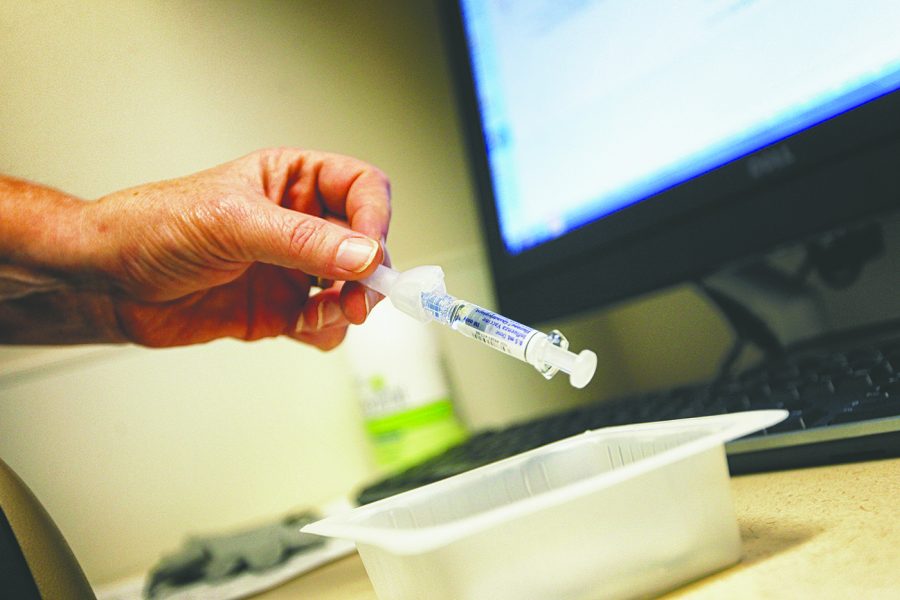Iowa City school officials are pleased with rising vaccination numbers
As the school year begins, health officials stress the importance of students getting immunized to protect against harmful illnesses.
Photo Illustration
August 30, 2018
Rising vaccination numbers and predictions for more of the same can mean nothing but positive news for Iowa City schools and the University of Iowa.
Another school year has begun, and as fall approaches, so does the need for vaccinations.
School districts have mandated that children get vaccinated against certain communicable diseases, such as measles, mumps, polio, chicken pox, and rubella, in order for students to attend school.
Jody R. Murph, an associate professor of pediatrics at the University of Iowa Stead Family Children’s Hospital, said the immunization rate for children born in 2013 was 77 percent. The rate was 69 percent for children born in 2010. These rates are based on whether children had completed a series of seven vaccines.
When looking at the K-12 school health audit for 2017-2018 in Iowa, Murph said, 98.82 percent of students had met the requirements for vaccinations, which is 94 percent.
For some diseases, such as measles, mumps, and rubella, 94 percent of the population needs to be immunized to protect nonimmunized people from contracting the illnesses, she said. If there is a high enough vaccination rate in one area, it’s less likely for a communicable disease to spread. This is called herd immunity.
“It’s important for everyone to be immunized to protect themselves, as well as protect the people who can’t get the vaccinations,” said Jennifer Miller, a disease-prevention specialist in the Johnson County Public Health Department.
Some students don’t receive the vaccinations because of medical or religious exemptions, Miller said. Students could have medical exemptions if they are allergic to a certain component of the vaccines or if they have some other health conditions for which the vaccines would have an adverse effect.
If students do not have exemptions, they are required to receive the vaccinations, because students can contract illnesses easier, given the proximity with one another, Miller said.
“New parents may decline to get their children vaccinated because they worry about possible adverse effects,” she said. “The new parents haven’t seen the severity of the diseases because the vaccines are so successful. The health community should reach out and educate people about the benefits of vaccinations.”
Susie Poulton, the student-health coordinator for the Iowa City School District, said the school health audit for this year hasn’t been released yet. However, she predicts the immunization rate will be the same or better based on rates from past years. This year’s audit will come out in October.
“The rise has to do with new vaccination laws being put in place in recent years,” Poulton said. “For seventh- and 12th-graders, there is a vaccine that is required they receive in order to attend school. The rates lowered because people didn’t know about the law. Now that people are educated about it, immunization rates should rise.”



